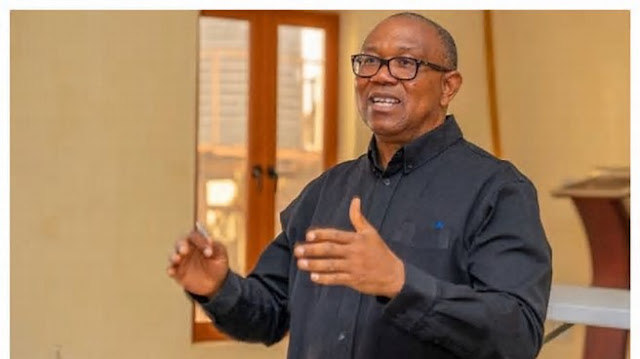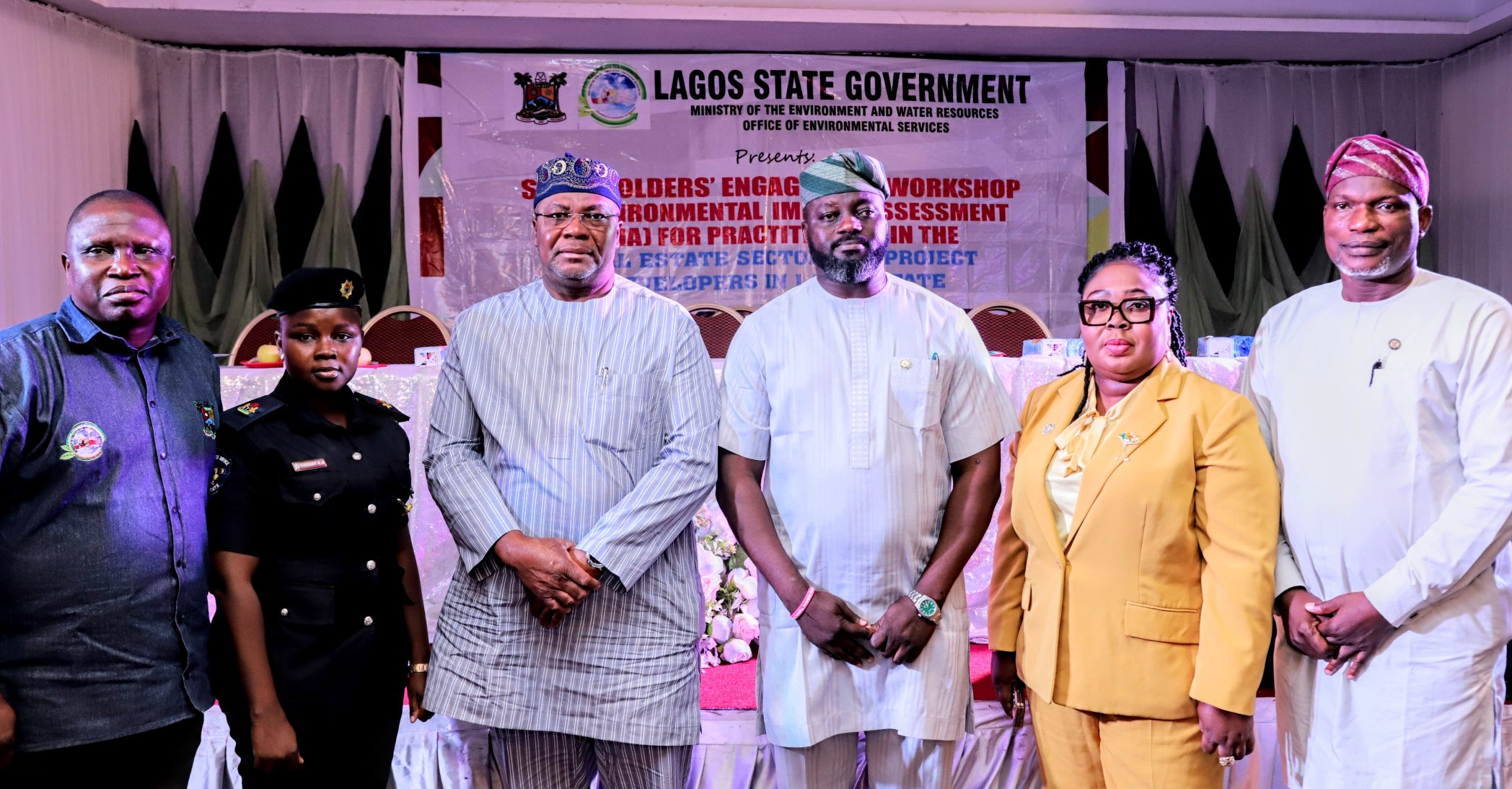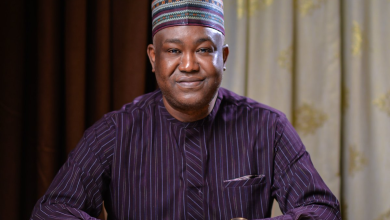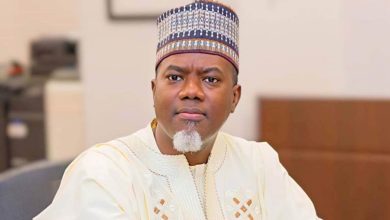In a powerful critique of Nigeria’s current economic trajectory, Peter Obi, the former presidential candidate of the Labour Party (LP) in the 2023 general elections, has called on the administration of President Bola Ahmed Tinubu to redirect its focus toward improving the welfare of Nigerians. In a statement shared on his X handle on Thursday, September 4, 2025, Obi urged the federal government to demonstrate “sensitivity and compassion” by channeling excess revenue into initiatives that create jobs, alleviate hardship, and uplift the lives of ordinary citizens. His remarks come amid growing concerns about Nigeria’s rising debt profile, persistent poverty, and the government’s handling of economic challenges. Obi’s intervention has reignited debates about the direction of Nigeria’s economic policies and the leadership required to navigate the country out of its current challenges.
A Call for Responsible Governance
Peter Obi’s statement reflects a deep concern for the plight of Nigerians, whom he believes are being pushed deeper into debt and despair under the current administration. The former governor of Anambra State criticized the government’s economic management, particularly its handling of public funds and borrowing practices. “It is shameful that those who built this nation with their sweat, those who defended it with their lives, and those who have fulfilled their contractual obligations are reduced to begging for what is rightfully theirs, even after the government boasts of excess revenue,” Obi stated.
Obi’s remarks were prompted by reports that the Tinubu administration had achieved its 2025 revenue target by August, a milestone the president hailed as evidence of a stabilizing economy. However, Obi argued that such achievements are meaningless if they do not translate into tangible improvements in the lives of Nigerians. “Our nation must not continue to throw its citizens into debt and despair,” he asserted, emphasizing the need for responsible governance that prioritizes the welfare of the people over statistical milestones.
The former governor’s critique is rooted in a broader narrative of dissatisfaction with Nigeria’s economic management. He pointed to the deplorable state of public institutions, such as schools and hospitals, and the government’s failure to clear outstanding debts to contractors and pensioners. Obi’s call for the government to act with integrity and compassion underscores his long-standing advocacy for transparent, people-centered governance—a hallmark of his political career.
Nigeria’s Escalating Debt Crisis
Central to Obi’s critique is Nigeria’s burgeoning debt profile, which he has repeatedly described as unsustainable. As of the first quarter of 2025, Nigeria’s total public debt stood at approximately ₦149.39 trillion, according to Obi. The recent approval of additional external loans totaling $21 billion, €2.2 billion, and ¥15 billion, along with a ₦750.98 billion domestic bond issuance, has pushed the debt burden to an estimated ₦187 trillion, with projections suggesting it could exceed ₦200 trillion by the end of 2025.
Obi has consistently argued that borrowing is not inherently problematic, provided it is sustainable and tied to productive investments with measurable outcomes. However, he contends that the current pattern of borrowing lacks transparency, accountability, and tangible impact. “This current pattern of borrowing without accountability, without transparency, and without transformational impact is simply mortgaging the future of our children,” he warned.
The former governor’s concerns are echoed by economic analysts who have raised alarms about Nigeria’s debt-to-GDP ratio and the increasing cost of debt servicing. In 2025, Nigeria’s debt servicing ratio reportedly declined from 90% to 64%, a development the government has touted as a positive shift. However, critics argue that this reduction is insufficient to alleviate the pressure on the economy, particularly when critical sectors like education, healthcare, and infrastructure remain underfunded. Obi emphasized that the government’s borrowing practices must consider the intergenerational consequences, ensuring that future generations are not saddled with unmanageable debt.
Economic Hardship and Public Discontent
Obi’s statement also highlights the worsening economic hardship faced by millions of Nigerians. According to a United Nations report published on August 1, 2025, 34 million Nigerians are at risk of hunger, a statistic Obi described as “not just an abstract number” but a reflection of real people struggling to survive. He has repeatedly criticized the government for relying on manipulated data to mask the reality of poverty, unemployment, and food insecurity. “Today, Nigeria is classified as one of the hungriest nations in the world,” Obi noted, recalling President Tinubu’s 2022 campaign remark that dismissed the importance of statistics in favor of putting “food on the table of Nigerians.” Nearly two years into Tinubu’s tenure, Obi argues, this promise remains unfulfilled.
The economic challenges facing Nigeria are multifaceted. The removal of fuel subsidies, a policy Obi supported in principle, has led to skyrocketing fuel prices and increased living costs, exacerbating poverty and inflation. While Obi acknowledged that the subsidy regime was riddled with corruption, he criticized the “haphazard” manner of its removal, arguing that it lacked proper implementation strategies to cushion the impact on ordinary Nigerians. Additionally, the country’s infrastructure, particularly its road network, remains in poor condition, with Obi noting that 135,000 km of Nigeria’s 195,000 km of roads are unpaved and unusable.
Security challenges further compound Nigeria’s woes. Obi cited data indicating that over 10,217 people were killed and 672 villages sacked between May 2023 and May 2025, despite increased security spending from ₦2.98 trillion in 2023 to ₦4.91 trillion in 2025. These figures underscore the government’s failure to address insecurity, which continues to disrupt economic activities and displace communities. Obi’s visits to internally displaced persons (IDP) camps, such as one in Abuja, revealed dire conditions, with occupants lacking access to basic amenities like healthcare and education.
Obi’s Vision for Nigeria
Peter Obi’s critique is not merely a condemnation of the current administration but part of a broader vision for a “New Nigeria” rooted in disciplined and prudent economic management. Throughout his political career, Obi has advocated for cutting the cost of governance, blocking financial leakages, and investing in human capital. He has consistently called for transparency and accountability, urging Nigerians to hold leaders responsible for the misuse of public funds.
In his 2023 presidential campaign manifesto, titled “Our Pact with Nigerians: Creating a New Nigeria,” Obi outlined a detailed plan for economic reform, including a structured approach to subsidy removal and investments in education, healthcare, and infrastructure. He emphasized the importance of transitioning Nigeria from a consumption-driven economy to a production-oriented one, particularly through export-led growth and anti-corruption measures. These principles continue to guide his public interventions, as seen in his call for the Tinubu administration to prioritize hungry Nigerians over lavish spending, such as the ₦712.3 billion allocated for airport renovation.
Obi’s vision resonates with many Nigerians, particularly the youth, who see him as a credible voice for change. His grassroots movement, known as the “Obidient Movement,” has gained significant traction, with supporters praising his principled stance against corruption and personal attacks. However, critics argue that Obi’s focus on data and statistics can sometimes appear detached from the immediate needs of Nigerians, a point Tinubu himself raised during the 2022 campaign.
Political Context and the APC’s Response
Obi’s critique comes at a time of heightened political tension, with the 2027 general elections looming on the horizon. As the former governor continues to position himself as a leading opposition figure, his statements are seen as an attempt to rally public support and hold the APC-led government accountable. The APC, in turn, has defended its economic record, pointing to achievements such as a $20 billion inflow into the economy, a ₦6.52 trillion trade surplus in Q1 2024, and a 66.27% increase in capital inflow. The party has accused Obi of spreading “half-truths, blatant distortions, and misinformation” to mobilize outrage, dismissing him as an “embittered loser” intent on undermining the government’s progress.
The APC’s defense highlights the polarized nature of Nigeria’s political discourse. While the party touts macroeconomic indicators like a 3.1% GDP growth projection for 2024 by the International Monetary Fund, Obi argues that these figures are meaningless without improvements in education, healthcare, and poverty alleviation. This tension reflects a broader debate about the role of statistics versus lived realities in assessing governance.
The Broader Implications
Obi’s call to halt Nigeria’s descent into debt and despair has far-reaching implications for the country’s political and economic future. His emphasis on transparency, accountability, and people-centered governance challenges the status quo, forcing a reckoning with the systemic issues that have plagued Nigeria for decades. Corruption, mismanagement, and a lack of political will have long hindered the country’s development, and Obi’s consistent advocacy for reform has positioned him as a voice for the disenfranchised.
However, Obi faces significant challenges in translating his vision into political reality. The APC’s dominance, particularly in states like Lagos, and the complexities of Nigeria’s electoral system pose formidable obstacles. Moreover, his critics argue that his focus on critique without offering immediate solutions risks alienating voters who seek practical remedies to their daily struggles.
The rising debt profile, which Obi has described as “mortgaging the future of our children,” is a particularly pressing issue. With Nigeria’s debt projected to exceed ₦200 trillion by the end of 2025, the government faces the daunting task of balancing fiscal responsibility with the need for development. Obi’s call for prudent economic management resonates with economists who warn that unsustainable borrowing could lead to a debt crisis, similar to those experienced by other African nations.
Public Reaction and Social Media Buzz
Obi’s statement has sparked widespread discussion on platforms like X, where Nigerians are debating the state of the economy and the government’s performance. Supporters of Obi, particularly within the Obidient Movement, have praised his candor and commitment to holding leaders accountable. “Peter Obi is the only one telling the truth about Nigeria’s problems,” wrote one X user, echoing the sentiments of many who view him as a credible alternative to the current leadership.
Conversely, APC supporters have accused Obi of politicizing economic challenges for personal gain. “He’s just trying to stay relevant for 2027,” one user commented, reflecting the skepticism of those who see his interventions as electioneering. These polarized reactions underscore the deep divisions in Nigeria’s political landscape, where economic hardship and governance are contentious issues.
The Road Ahead
As Nigeria navigates its economic and political challenges, Peter Obi’s call for responsible governance serves as both a critique and a rallying cry. His focus on redirecting excess revenue to improve welfare, reduce debt, and address poverty aligns with the aspirations of millions of Nigerians who seek a better future. However, the path to achieving these goals is fraught with obstacles, including entrenched political interests and systemic inefficiencies.
The Tinubu administration, now two years into its four-year term, faces increasing pressure to deliver on its promises of economic stability and improved living standards. Initiatives like the Credit Corps, Students Loan, and the Lagos-Calabar coastal highway have been touted as efforts to combat poverty and expand opportunities, but their impact remains limited in the face of widespread hardship.
For Obi, the challenge is to sustain his momentum as a leading opposition figure while offering a viable alternative to the APC’s policies. His emphasis on a “New Nigeria” rooted in transparency and accountability has resonated with many, but translating this vision into electoral success will require strategic coalition-building and grassroots mobilization.
In conclusion, Peter Obi’s call for the Tinubu administration to halt Nigeria’s descent into debt and despair is a clarion call for change in a country grappling with economic and social challenges. By highlighting the disconnect between revenue achievements and the lived realities of Nigerians, Obi has sparked a critical conversation about the kind of leadership Nigeria needs. As the 2027 elections approach, his voice will likely remain a powerful force in shaping the nation’s political discourse, challenging the government to act with integrity and prioritize the welfare of its people.






